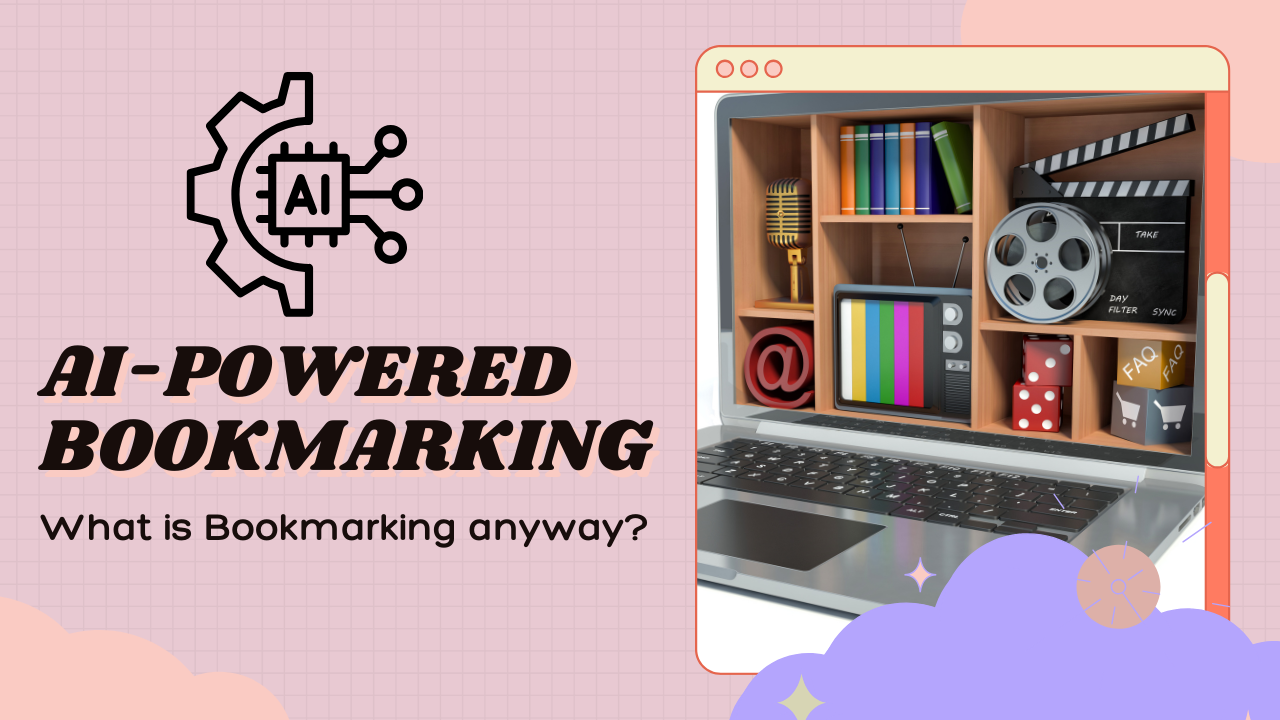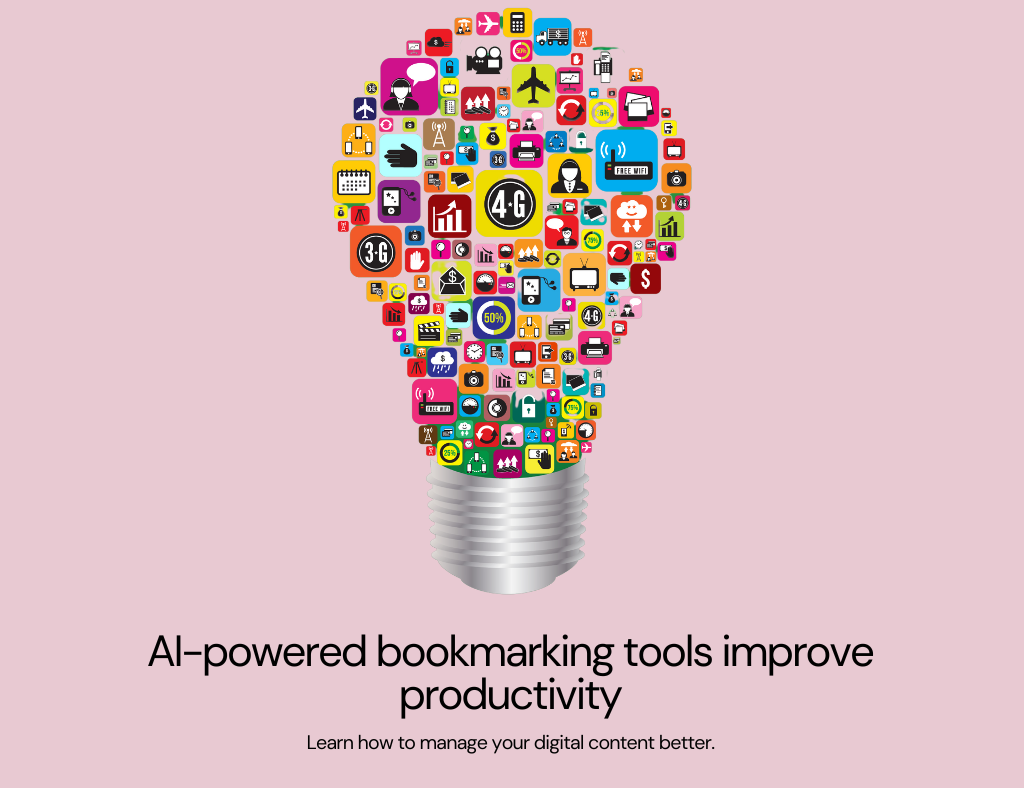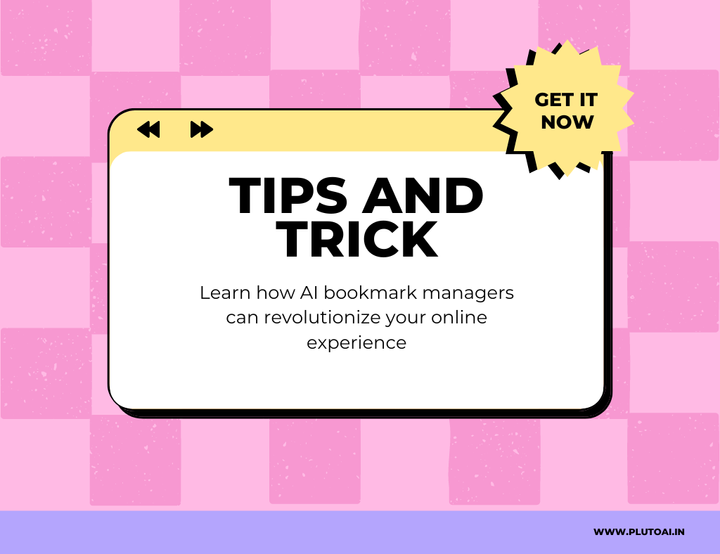How AI-powered bookmarking revolutionizes research papers (and what is a bookmark anyway?)
How AI-powered bookmarking revolutionizes research papers (and what is a bookmark anyway?)

The academic world thrives on a constant influx of new knowledge. Research papers are the lifeblood of this ecosystem, offering invaluable insights and propelling advancements across disciplines, and staying updated with the latest research findings is essential for academic success. Research papers serve as valuable resources, but keeping track of them all can be overwhelming. Traditional bookmarking methods may not always suffice for serious academic research.
Traditional bookmarking methods, while helpful for casual web browsing, simply can't handle the demands of serious academic research. Endless lists of generic titles and disorganized folders quickly become a labyrinth, hindering your ability to locate that crucial study when you need it most. Thankfully, AI-powered bookmarking tools offer a solution.
Here's where AI-powered bookmarking tools emerge as the hero of the research journey. These innovative solutions leverage artificial intelligence to transform the way you manage your research paper collection. But before we delve into the transformative power of AI, let's revisit the concept of bookmarking itself and explore how AI breathes new life into this familiar process.
But what exactly is bookmarking, and how can AI transform this process? Let's dive deeper into these questions to find out how AI-powered bookmarking tools can streamline research paper management and enhance productivity in academia.
What is Bookmarking?
Bookmarking is like creating your library of online resources. It's a way to save and organize web pages, articles, or other online content that you find useful or interesting. Just as you might use a physical bookmark to hold your place in a book, online bookmarking lets you mark and save digital content so you can easily return to it later.
Imagine you're conducting research for a project or studying for an exam. You come across a helpful article, a useful website, or a thought-provoking blog post. Instead of trying to remember the URL or relying on your browser history to find it again, you can simply bookmark it. This saves the link for future reference, allowing you to access the content with just a click or tap.
Bookmarking also lets you organize your saved links into folders or categories. For example, you might create folders for different topics, projects, or interests, making it easier to find the resources you need when you need them. Plus, many bookmarking tools offer features like tagging, annotations, and search functions to further enhance organization and accessibility.
In short, bookmarking is a convenient way to keep track of online content and create a personalized library tailored to your interests and needs. Whether conducting research, studying, or simply exploring the web, bookmarking helps you save time and stay organized in the digital age.
Why Traditional Bookmarking Falls Short?
Remember the days of endless bookmark lists filled with generic titles like "Interesting Article"? Finding that specific paper you need becomes a frustrating treasure hunt. Traditional bookmarking methods often fall short for research purposesTraditional bookmarking, while useful for casual browsing, often falls short when it comes to managing the vast array of information encountered in academic or professional settings. Here are a few reasons why:
- Limited Organization: Traditional bookmarking systems typically rely on folders or lists to organize saved links. While this can work for a small number of bookmarks, it becomes cumbersome and inefficient as the number of saved links grows. It's challenging to maintain a hierarchical structure that accommodates diverse topics and interests.
- Lack of Context: Traditional bookmarks lack context, making it difficult to remember why a particular link was saved or how it relates to other saved content. Without annotations or descriptions, users may struggle to recall why a link was bookmarked or how it fits into their research or workflow.
- Manual Maintenance: Traditional bookmarking requires manual maintenance, including adding new bookmarks, organizing existing ones, and removing outdated or irrelevant links. This manual effort can be time-consuming and tedious, detracting from productivity and efficiency.
- Limited Access: Traditional bookmarks are often tied to a specific browser or device, limiting access to saved links when using different devices or browsers. This lack of cross-platform compatibility can hinder productivity and accessibility, especially for users who work across multiple devices or platforms.
- Inefficient Search: Traditional bookmarking systems typically offer limited search capabilities, making it challenging to quickly locate specific bookmarks among a large collection. Users may struggle to find the information they need, leading to frustration and wasted time.
Overall, while traditional bookmarking methods have their place, they are often inadequate for managing the complexities of academic or professional research. As the volume of information continues to grow, users require more robust and efficient tools to organize, access, and utilize online content effectively.

How AI Revolutionizes Bookmarking for Research Papers
AI-powered bookmarking tools are like having a personal research assistant by your side. These intelligent tools leverage artificial intelligence to streamline paper management and make your research life easier. Here's how:
1. Personalized Recommendations: AI algorithms analyze users' research interests and preferences to suggest relevant papers and articles. By understanding the researcher's preferences, AI-powered bookmarking tools provide personalized recommendations tailored to their specific field of study.
2. Automated Organization: AI-powered bookmarking tools automatically categorize and tag research papers based on their content and relevance. This eliminates the need for manual sorting and labeling, saving researchers time and effort in organizing their academic materials.
3. Contextual Insights: AI-powered bookmarking tools provide contextual insights into saved research papers, such as publication date, author information, and citation metrics. This information helps researchers better understand the significance and relevance of each paper within their research area.
4. Cross-Platform Integration: Many AI-powered bookmarking tools offer seamless integration across devices and platforms, allowing researchers to access their saved papers anytime, anywhere. Whether on their desktop, laptop, or mobile device, researchers can easily retrieve their academic materials with just a few clicks.
5. Enhanced Search Capabilities: AI-powered bookmarking tools feature advanced search algorithms that enable researchers to quickly find specific papers using keywords, tags, or categories. This streamlines the research process and ensures that researchers can locate the information they need with ease.
Beyond Bookmarking: Building a Knowledge Base
AI-powered bookmarking tools transcend the simple act of saving papers. They empower you to construct a personalized knowledge base, a meticulously curated collection of research that fuels your academic journey. Imagine having all your research meticulously organized and readily accessible at your fingertips. This eliminates the frustration of sifting through cluttered lists and wasted time spent retracing your steps.
Here's how AI bookmarking fosters a thriving knowledge ecosystem:
- Effortless Organization Breeds Clarity: AI categorizes and tags your papers with relevant keywords and topics, transforming them from isolated entries into a cohesive knowledge structure. This fosters clarity and facilitates connections between seemingly disparate research areas, potentially sparking new ideas and research avenues.
- Contextual Insights Unlock Deeper Understanding: AI delves deeper than simply saving entire pages. These tools can pinpoint specific sections, groundbreaking methodologies, or crucial citations within each paper. This empowers you to focus on the most critical aspects of the research, enhancing your understanding and fostering deeper intellectual engagement.
- Accessibility is King: Many AI-powered bookmarking tools offer seamless integration across devices. This ensures your meticulously curated knowledge base is always accessible, whether you're working on your desktop computer or referencing key points on your phone during a library visit. This fosters a dynamic research environment, allowing you to seamlessly integrate new information and insights into your ongoing projects.
By transforming research paper management from a burdensome task to a streamlined process, AI bookmarking tools empower you to focus on what truly matters – analyzing, synthesizing, and leveraging the power of knowledge to propel your research endeavors toward groundbreaking discoveries.
The Bottom Line
In conclusion, integrating AI-powered tools for bookmarking research papers offers a game-changing solution for scholars and researchers. With features such as personalized recommendations, automated organization, and enhanced search capabilities, these tools reshape the landscape of academic content management. By harnessing the capabilities of AI technology, researchers can streamline their workflows, maintain organization, and advance their knowledge in their respective fields.
Ready to revolutionize your academic journey? Explore Pluto AI for comprehensive bookmarking solutions and discover the essence of bookmarking in the digital age. Say goodbye to outdated methods and welcome a smarter, more efficient approach to saving, organizing, and retrieving information.
Explore the power of AI to redefine your research experience and discover the full potential of what is bookmarking.
Start your journey with Pluto AI today and elevate your scholarly pursuits to new heights!

